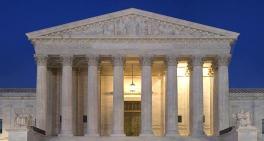U.S. Bankruptcy Courts VI
United States Courts
All bankruptcy cases are handled in federal courts under rules outlined in the U.S. Bankruptcy Code.
There are different types of bankruptcies, which are usually referred to by their chapter in the U.S. Bankruptcy Code.
Individuals may file Chapter 7 or Chapter 13 bankruptcy, depending on the specifics of their situation.
Municipalities—cities, towns, villages, taxing districts, municipal utilities, and school districts may file under Chapter 9 to reorganize.
Businesses may file bankruptcy under Chapter 7 to liquidate or Chapter 11 to reorganize.
Chapter 12 provides debt relief to family farmers and fishermen.
Bankruptcy filings that involve parties from more than one country are filed under Chapter 15.
Puerto Rico - ECF
Rhode Island - ECF
South Carolina - ECF
South Dakota - ECF
Tennessee Eastern - ECF
Tennessee Middle - ECF
Tennessee Western - ECF
Texas Eastern - ECF
Texas Northern - ECF
Texas Southern - ECF
Texas Western - ECF
Utah - ECF
Vermont - ECF
Virgin Islands - ECF
Virginia Eastern - ECF
Virginia Western - ECF
Washington Eastern - ECF
Washington Western - ECF
West Virginia Northern - ECF
West Virginia Southern - ECF
Wisconsin Eastern - ECF
Wisconsin Western - ECF
Wyoming - ECF
Related listings
-
U.S. Courts of Appeals
United States Courts 07/30/2017There are 13 appellate courts that sit below the U.S. Supreme Court, and they are called the U.S. Courts of Appeals. The 94 federal judicial districts are organized into 12 regional circuits, each of which has a court of appeals. The appellate ...
-
U.S. Supreme Court
United States Courts 07/30/2017U.S. Supreme Court The Supreme Court is the final judge in all cases involving laws of Congress, and the highest law of all — the Constitution. The Supreme Court, however, is far from all-powerful. Its power is limited by the other two branches...
-
National Courts
United States Courts 06/30/2017Judicial Panel On Multidistrict Litigati - ECF U.S. Court Of Federal Claims - ECF U.S. Court Of International Trade - ECF

Forte Law Group is a trusted resource to protect your child’s needs.
Based on the culmination of ongoing state, municipal and board of education budget cuts, coupled with school districts having to do more with less resources, the current climate within schools often dictates that you may require a special education attorney to achieve the best results when advocating for your child’s right to a free appropriate public education. Coupled with increasing class sizes, your child may slip through the cracks within the school system itself and not be receiving an appropriate education with measurable goals and objectives.
A Connecticut Special Education Attorney Knows the Law
Often is the situation that there already exists a high level of frustration and contention between the family and school when special education and related services are not being appropriately delivered. Many times, the relationship between family and school results in an adversarial environment that is not conducive towards a team approach for the benefit of your child’s needs.




